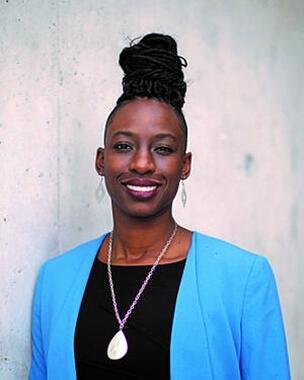 HDC Past President and BIPOC Advocacy Working Group member, Andrea Downie, had the opportunity to interview Dr. Janelle Joseph of University of Toronto about the importance of representation in dance and academia. AD - How does lack of representation impact dancers’ / athletes’ health, wellbeing, and performance? JJ - Lack of representation impacts dancers’ / athletes’ health and wellbeing as it can lead to enhanced feelings of being an imposter and doubt over one’s inclusion and talents. When Black dancers don’t see themselves represented in the teachers, dance school owners, administrators, or educators they may not imagine that those roles are for them. They might limit their imaginations and restrict their roles. As a Black dance teacher and educator, I have acted as a role model and mentor for many people. Black leaders provide guidance to all learners, but especially People of Colour, to understand how to navigate their careers. AD - Please discuss the importance of representation in academia. JJ - Representation in academia is essential for the same reasons. Faculty have to not only guide students but decide on curricula, syllabi, and do committee work within the department that helps to shape the departmental and faculty culture. Without racialised and specifically black faculty the knowledge that is produced about black communities will be limited. This will affect student learning, which ultimately has an impact on the broader culture as students with understanding of and respect for Black peoples and cultures will end up influencing many different industries in anti-racist ways. AD - What are some of the barriers that Black dance scholars face in the academy? JJ - The barriers faced by Black dance scholars are replicated in many different faculties. It is clear that hiring practises are not equitable. In addition to being excluded from hiring and promotion, there is an over-burden of equity work in addition to academic work even if one’s research and teaching do not focus on Black issues. Many Black faculty feel obligated to make things more fair for the next generation to come and end up doing more service work. The burden is especially heavy for those socialized as women who feel pulled into caring and administrative roles. Another important issue for black dance scholars is that we often have to be away from our campuses for research. There is great research happening on black dance in Canada. However, many dance researchers need to travel to Brazil, the U.S., the African continent or across the Caribbean for their research. This can add additional strain to our faculty members role and our personal lives. I don’t think scholars in bench science or humanities consider these additional pressures. AD - How would you describe your research to those not in academia? JJ - To those not in academia I say my research relates to ideas of movement (including dance, sport, and martial arts) and ideas of culture (including race, multiculturalism, and nationalism). I love exploring the meanings we make from, communities we form within, and stories we tell about the moving body. Dr. Janelle Joseph is an Assistant Professor in Critical Studies of Race in the Faculty of Kinesiology and Physical Education and Founder and Director of the Indigeneity, Diaspora, Equity, and Anti-racism in Sport (IDEAS) Lab. Dr Joseph studies broadly defined movement practices including dance and carnival culture, and produces award-winning research including three books. https://kpe.utoronto.ca/faculty/joseph-janelle
0 Comments
Leave a Reply. |
AUTHORSHDC connects dancers, dance educators, health care professionals and researchers across the world via our News blog and Members' Newsletter. Share our news and newsletters in your studio, school or clinic! Categories
All
Archives
July 2024
|
|
|
Proudly powered by Weebly
Site illustrated by Lisa Dickson
© Healthy Dancer Canada - The Dance Health Alliance of Canada, 2024 |

 RSS Feed
RSS Feed